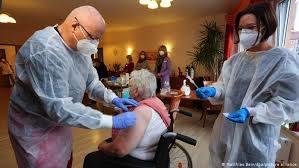 Recently the Centers for Disease Control recommended administration of a booster dose to previously vaccinated individuals including those with weakened immune response, recipients of organ transplants, HIVpatients, those undergoing cancer therapy or other conditions that impede a durable response to vaccines including the mRNA two-dose regimens. Accordingly, pharmacies in supermarkets and free-standing stores are offering a booster dose to eligible recipients who will not be required to show proof of their condition.
Recently the Centers for Disease Control recommended administration of a booster dose to previously vaccinated individuals including those with weakened immune response, recipients of organ transplants, HIVpatients, those undergoing cancer therapy or other conditions that impede a durable response to vaccines including the mRNA two-dose regimens. Accordingly, pharmacies in supermarkets and free-standing stores are offering a booster dose to eligible recipients who will not be required to show proof of their condition.
Dr. Rochelle Walensky, Director of the Centers for Disease Control and Prevention, stated “At a time when the Delta variant of the virus is surging, an additional vaccine dose for some people with weakened immune systems could help prevent serious and possibly life-threatening COVID cases within this population.” The expedient of administering a booster dose to the immunosuppressed presages administration to the elderly and then based on scientific evidence and serologic surveys, extension to the entire population.
 It is indeed fortunate that the U.S. has available vaccines to implement a third round of vaccination. If a program is implemented, it will be somewhat at the expense of developing nations where a shortage of vaccines and logistic restraints has prevented administration of even a first dose.
It is indeed fortunate that the U.S. has available vaccines to implement a third round of vaccination. If a program is implemented, it will be somewhat at the expense of developing nations where a shortage of vaccines and logistic restraints has prevented administration of even a first dose.
Health authorities are expected to approve a booster vaccination to be administered six months after the second of the two-part mRNA initial immunization or after the single-dose vaccine. It is ironic that the administration of a booster dose is supported by a high proportion of potential recipients representing 60 percent of our population while more than 25 percent of our fellow citizens eligible for a vaccine are either hesitant or opposed to this elementary but effective preventive measure.
Failure to be vaccinated and also to comply with commonsense preventive precautions will prolong the current pandemic and delay economic recovery.